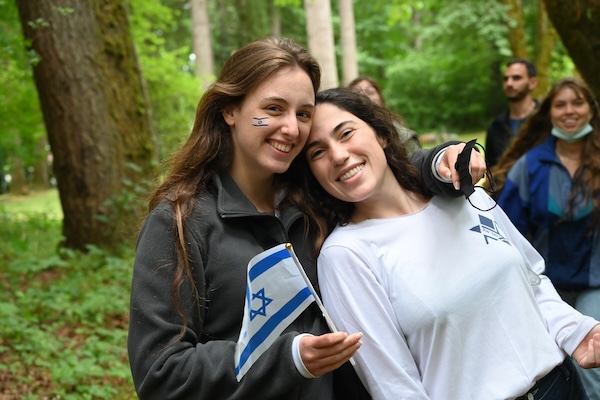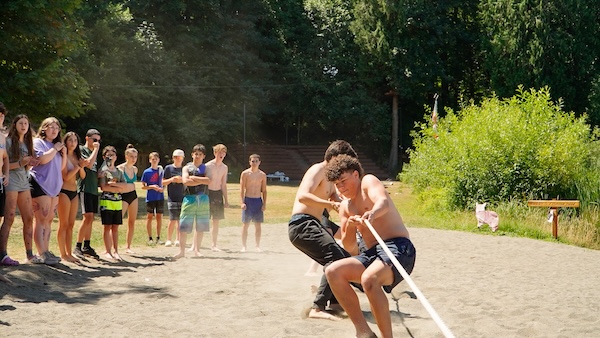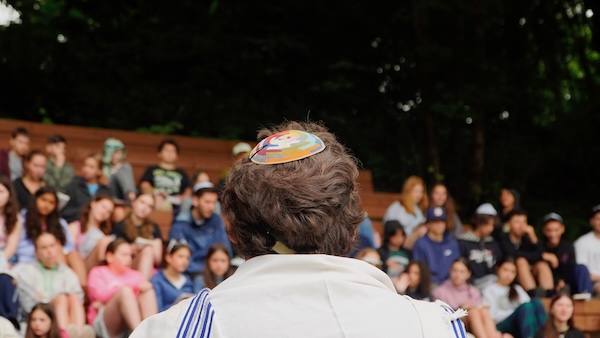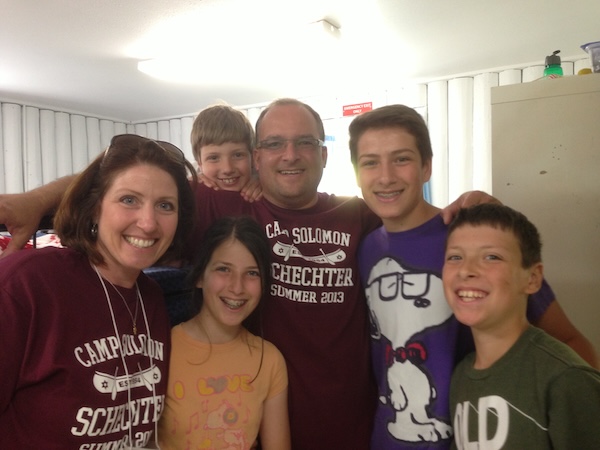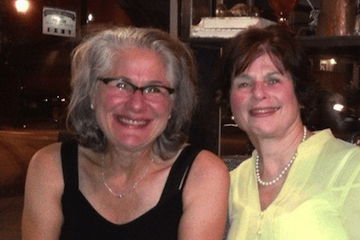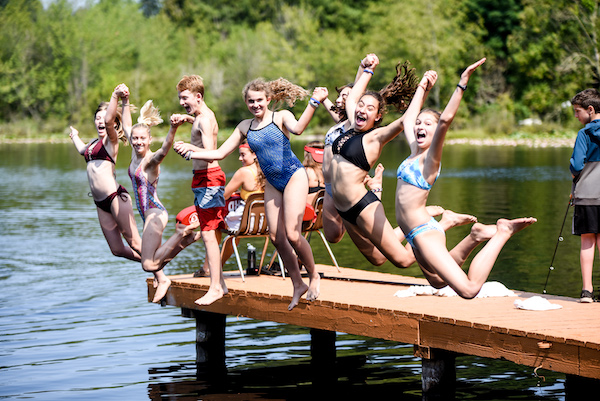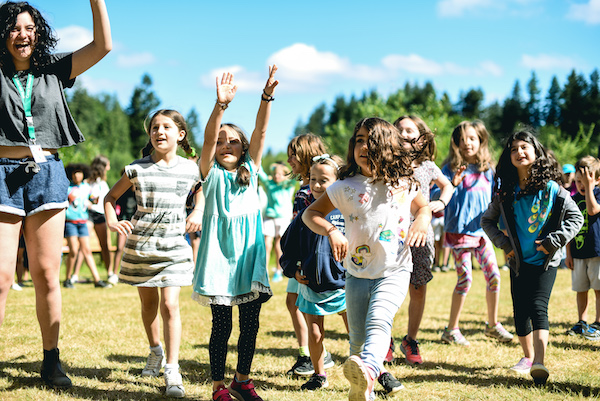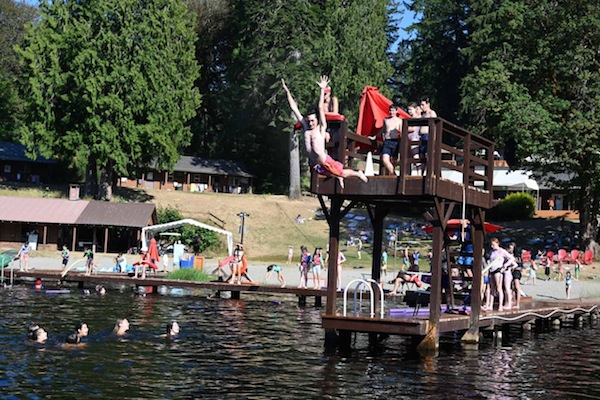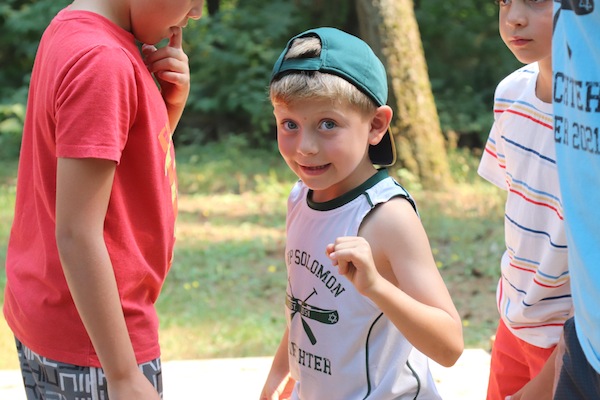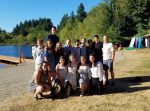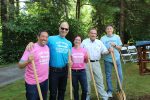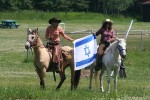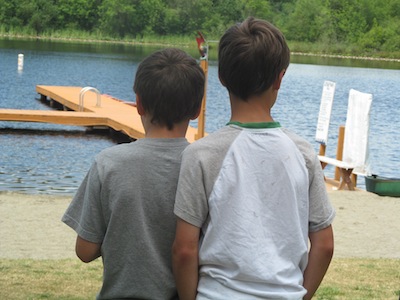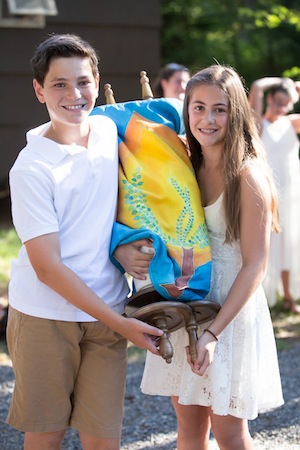Camp Solomon Schechter builds identity and combats antisemitism. (photo from Camp Solomon Schechter)
During Tisha b’Av, a day of mourning and reflection, the entire camp community of Camp Solomon Schechter in Tumwater, Wash. – 300 campers, ranging from 3rd to 10th graders – gathered in silence at the amphitheatre. A staff member stepped forward, the flicker of torches casting shadows. They asked a question: “Please stand if you have ever encountered antisemitism.”
Slowly, hesitantly at first, campers began to rise – one by one, then in clusters. Younger campers glanced around, their faces etched with uncertainty, before joining their peers. Staff members, too, stood. Eventually, every camper and every staff member were on their feet.
The sight was both powerful and heartwrenching. The realization that every single member of our community, even our youngest, had faced antisemitism was a sobering reminder of the challenges our children navigate. It underscored the importance of camp being a safe haven and Camp Solomon Schechter’s mission to empower campers with pride, resilience and an unshakable connection to their Jewish identity.
“Living as a minority, especially in times when hate seems to be ever growing, camp becomes an oasis of belonging, safety and joy,” said Rabbi Eve Posen of Congregation Neveh Shalom in Portland, Ore. “The opportunity for children to be immersed in joyful Judaism at camp is a powerful antidote to the antisemitism present in our world today.”
Antisemitism is not a relic of the past – it is a persistent reality that manifests in subtle and overt ways, from exclusionary rhetoric to acts of violence. As Jewish communities grapple with these challenges, there is a question that arises time and again: how do we equip the next generation to respond to and rise above these threats? One answer lies in Jewish summer camp.
Camp Solomon Schechter believes camp is more than a summer getaway – it’s a transformative space where Jewish identity is not only celebrated but deeply ingrained. It’s where children and teens connect with their Judaism, form forever friendships and discover the joy of being part of community. These experiences serve as a critical counterweight to the forces of antisemitism by fostering pride, resilience and a sense of belonging.
Proud Jewish identities
Antisemitism seeks to diminish Jewish identity, often targeting individuals and communities by attacking their sense of self-worth and belonging. Schechter counters this by fostering environments where Jewish life is celebrated unapologetically. Imagine a Shabbat at camp: the entire community dressed in white, walking hand in hand to a service that looks out on Lake Stampfer. The melodies of prayers mingle with the natural beauty of the outdoors, creating a sacred space where campers feel deeply connected to their heritage and one another. These moments instil a sense of pride that stays with them long after camp ends.
Whether it’s singing Birkat Hamazon after meals or morning prayers, core tenets like Shabbat, kashrut and tefillah – and the intentionality (kavana) brought to these traditions – the camp cultivates shared values and rituals that form the foundation for lasting friendships and a rich Jewish life. Examples include Maccabiah (team-building through friendly competition), the Oded program (Jewish leadership development) and Havdalah, where the entire community gathers to mark the end of Shabbat with song and light.
The integration of Jewish practice into every activity reinforces the idea that being Jewish is not just about rituals – it’s about community, identity and how we live our daily lives. At Schechter, Jewishness is woven into everything, from discussions about values to hands-on activities like planting Camas bulbs as part of an environmental stewardship program. Playing basketball becomes a Jewish experience because it’s played alongside Jewish friends. Swimming in Lake Stampfer is Jewish because it’s filled with laughter and camaraderie among a community united by shared traditions. Climbing the ropes course is Jewish because it’s about trust, teamwork and overcoming challenges together. Even sitting down for lunch is Jewish because it’s a moment of connection, blessings are recited.
Through stories, songs and discussions, campers gain a nuanced understanding of Israel beyond the headlines. Hebrew is spoken throughout the day. Programs like the Israeli Scout delegation and daily flag-raising ceremonies, where Hatikvah is sung, help campers develop a connection to Israel while instilling a sense of responsibility to something greater than themselves.
Cultivating resilience
Camp teaches resilience in ways both subtle and profound. The challenges of a ropes course or the learning a new skill remind campers of their own strength and capability. These lessons are essential when confronting antisemitism, which often tests the emotional and psychological fortitude of young Jews.
More importantly, camp creates a safe space to address difficult conversations. When global events – like the war in Israel – impact our community, camp becomes a haven where campers and staff can process their feelings and find support.
Staff bring their own Jewish journeys to Schechter, and campers are surrounded by Jewish role models who inspire them through teaching, leadership and mentorship.
Community bonds
Antisemitism isolates individuals and communities, attempting to weaken the collective strength of the Jewish people. At Schechter, the opposite happens: connections are built that transcend geography and last a lifetime. Campers come from across the Pacific Northwest, spanning a range of backgrounds and experiences. At camp, these differences dissolve as the kids unite around shared traditions, values and goals. Whether it’s competing in a friendly staff versus camper football game or singing camp parodies around the closing bonfire, the bonds formed at camp are rooted in joy, trust and mutual respect.
These connections don’t just benefit the individuals involved. Camp alumni go on to become leaders in synagogues, schools and other Jewish organizations, bringing the lessons of connection and collaboration they learned at camp into their adult lives.
At Schechter, we see it every summer: campers and staff return home inspired and proud to be Jewish. Campers leave not only with stronger Jewish identities but with a sense of hope for the future. That hope is our greatest weapon against hate, and it’s what ensures the continuity and vibrancy of our people for generations to come. To support our work, visit campschechter.org/give.
– Courtesy Camp Solomon Schechter

